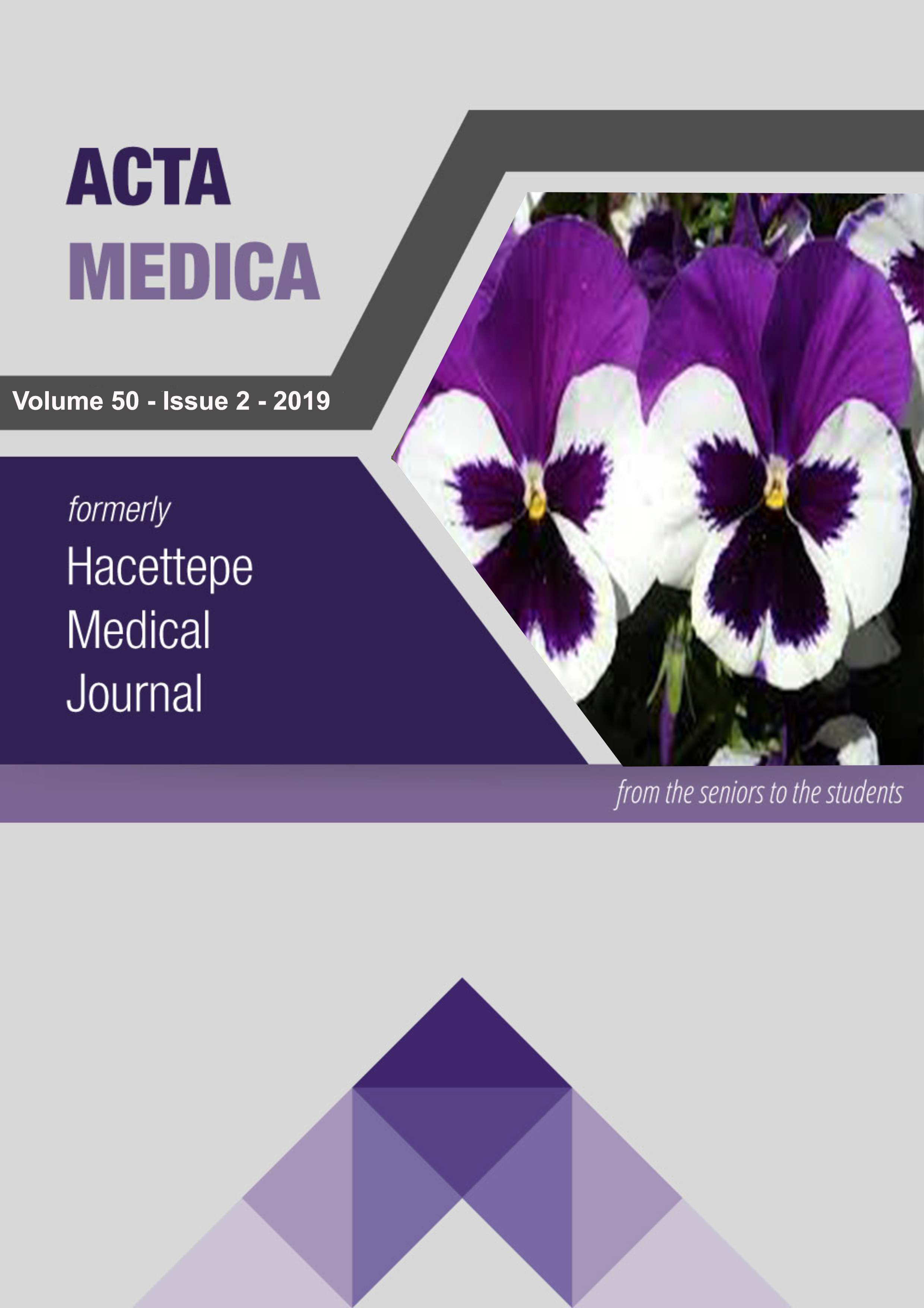Gender Differences: Does it affect clinical, radiological and microbiological features in adult non-cystic fibrosis bronchiectasis?
DOI:
https://doi.org/10.32552/2019.ActaMedica.366Abstract
Objective: This study aimed to investigate the gender effect on the clinic, radiological, and microbiological features in adult non-cystic fibrosis (CF) bronchiectasis (BR).
Material and Methods:This was a cross-sectional study of 217 patients with adult non-CF BR. Patients with a confirmed diagnosis of bronchiectasis with high resolution computed tomography were investigated. Patients were clinically stable in the previous four weeks enrolled in the study. Symptoms, pulmonary function tests, radiological findings, microbiological results, and bronchiectasis severity index (BSI) were recorded.
Results: The mean age of patients was 49.7 (15.3) years (range 18-82). Fouty-one percent patients had smoking history. BR patients had a history of pneumonia sequel (47.9%), post-tuberculosis (33.6%) and idiopathic (15.7%). Patients divided in to 2 groups as group I (female, n=122 (56.2%)) and group II (male, n=95 (43.8%)). There were a differences in cough (84.4% vs 71.6%, p=0.029), smoking history (19.7% vs 75.9 %,p=0.001), COPD (4.1% vs 37.9%, p=0.001), diabetes mellitus (21.3% vs 9.5%, p=0.025), depression history(36.1% vs 10.6%, p=0.001), panic disorders (10.7% vs 3.2%, p=0.039), long term oxygen usage (6.6% vs 17.9%,p=0.017). Forty-two percent of male BR patients had post-tuberculosis history, fifty-six female had post-pneumonia history, also. FEV1 and FVC value were higher in man (1.5±0.7 vs 1.9±0.9,p= 0.001; 1.9±0.7 vs 2.7±1.0, p=0.0001 respectively). And also, FEV1/FVC ratio was lower in male (73.8±12.3 vs 67.8±15.3, p=0.01). But, There was no difference between gender and age, dyspnea, heamoptysis, BSI category, radiologic severity using Reiff’s score, microbiological features and BPAP usage.
Conclusion: We concluded that gender differences in non-CF BR might be clinically important in our study population. It is important to consider the gender differences might be effect symptoms, comorbidity, and pulmonary function test results to non-CF BR patients.
Downloads


